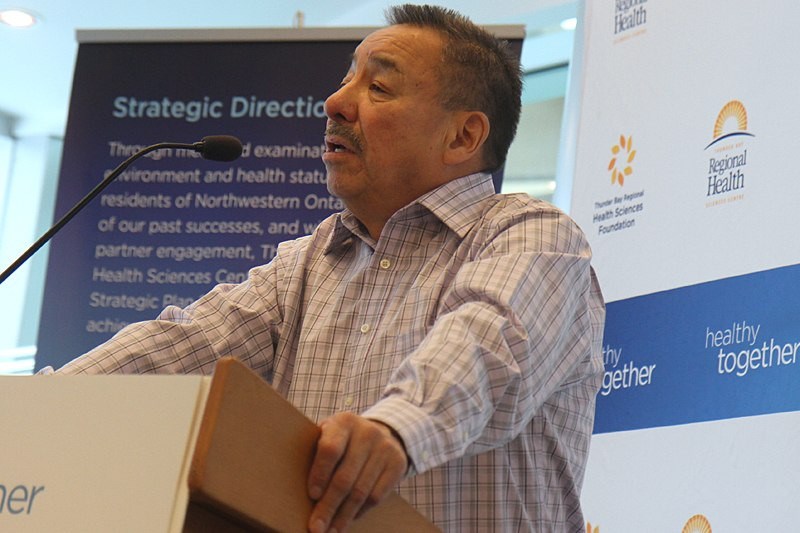Gary Cooper has three birthdays.
Like most people he celebrates the anniversary date of his actual birth. But twice a year Cooper and his family remember the people responsible for the liver transplants that twice saved the retired OPP officer’s life.
“We have celebrations where the family stops and we consider in our prayers the family that donate (the organs),” he said.
Cooper, who had his first liver transplant in 1996 and a second just three years ago, explained that he celebrates the day of his transplants as a rebirth where, despite not knowing them, he celebrates the legacy of those donors.
Cooper also wrote anonymous letters to the family of the donor, and said the hardest part was trying to put his gratitude into words.
“It’s just a simple letter where you say thank you for saving my life. It sounds so simple, but the emotion that goes into the words of thank you, you don’t know it until you feel it.”
Despite the sensitive nature of the subject, Cooper said talking with your family about organ donation is something that needs to happen.
“It never crossed my mind,” Cooper admits. “I know it’s something a lot of people don’t talk about because it means you’re actually talking about dying.”
Even though a person can sign up, the family can ultimately veto any donation so making wishes known is vital.
The Thunder Bay Regional Health Sciences Centre launched a two week campaign Monday to encourage hospital staff to sign up to become organ donors.
Thunder Bay has 43 per cent of the eligible population signed up as an organ donor, which puts the city in the top-20 across the province. The aim of the campaign is to get 350 registrants, or 43 per cent of the hospital workforce, to register as an organ and tissue donor.
While it is a campaign mainly focused at the hospital, the hope is that awareness will be raised among the general public.
Kiley Broughton, the organ and tissue donation co-ordinator at the hospital with the Trillium Gift of Life Network, said there is a clear need in the community for assistance.
“Every three days a person dies on that waiting list,” Broughton said. “Kids, mothers, fathers, they’re dying. We have the ability to save them if they make their wishes known.”
After losing his son, Stan Beardy wanted someone to benefit amid the tragedy. And organ donation provided him with that opportunity.
Beardy’s son Daniel was killed in 2004. Now Ontario’s regional chief, Beardy said the decision to donate his son’s organs allowed the story to continue beyond the gief.
“I think you have to be able to tell the complete story. Regardless of how bad the situation is, there is always some good in it,” he said.
“His life was so promising and he was so full of life I thought the way to celebrate his life was to donate his organs. He was very healthy and athletic and could give hope to somebody else to have a quality of life.”
Anybody interested in signing up to become an organ donor can do so at www.beadonor.ca.
